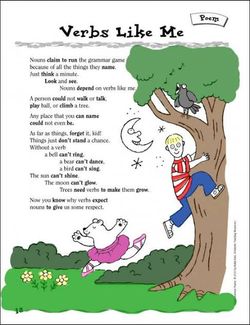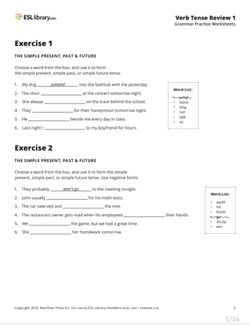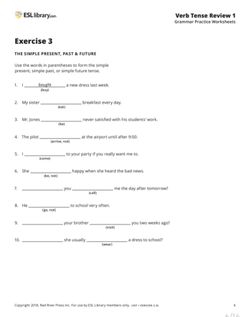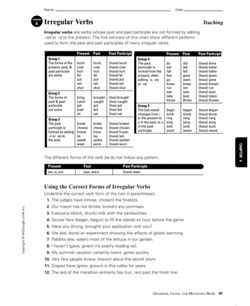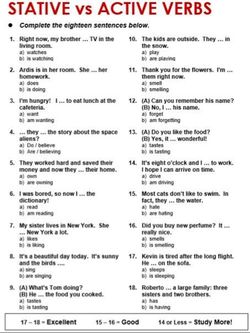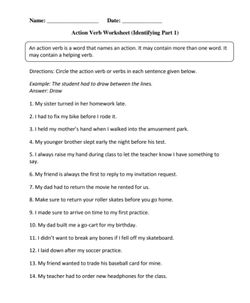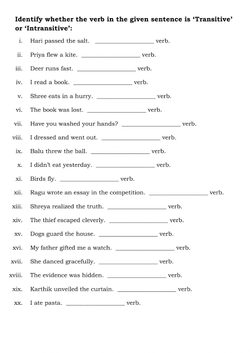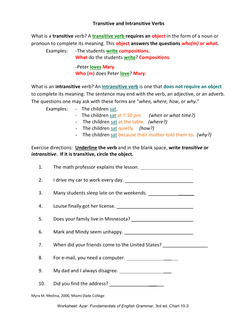Mar 8, 2022
Verbs Review 1
VERBS
❓In etymology (study of words), verbs are:
- a part of speech
-words that declare an action in relation to a noun/subject
- They tells us what a subject is doing/what is happening
Can we make sentences without verbs?
🙅♀️ NO.
Why do we need them?
Because, the tense(time) of a verb is determined by the action when took place.
🆎️Types of verbs
1. Regular/Irregular
2. Stative/Active
3. Transitive/Intransitive
4. Main/Helping (Auxiliary)
5. Primary Auxiliary/Modal
6. Finite/Infinitive
7. Gerunds
8. Linking verb/Copula
9. Phrasal verbs
🚨Today, we review regular/irregular, stative/active and transitive/intransitive.
1️⃣ REGULAR VERBS
- words with normal inflection (rhythm/tone/conjugation/form)
- used in simple past/past participle
- words that end with (+ed)
👷♂️Formation
Regular verb = Base form + ed
* If word ends with "e" add "d" e.g. bake(d), if it ends with "y" remove the "y" add (+ied) e.g. cr(ied) and if it ends with consonant, double the last letter and add (+ed) e.g. stop(ped).
✍In sentences?
➕Positive/Affirmative
Work -> I worked/I have worked/ I had worked.
*no different forms for every subject.
➖Negative
* Use helping verb "do"
* Do is an irregular verb which has 5 forms "do, does, doing, did, done"
Base form/Present simple = Do
Present simple = Does
Past simple = Did
Present partiple = Doing
Past participle = Done
Work -> I do not work/I don't work/I did not work/I didn't work
* Verb goes back to base form
❓Question/Interrogative
-Verb goes back to base form as well.
- Uses all question forms, e.g. Did/Didn't (I, you, we, they, he, she, it)
- Also uses question words such as Where, When, Why, How, What.
Work -> Did you work? Where do you work?
2️⃣IRREGULAR VERBS
- No typical pattern, rhythm, conjugation, tone
- Learned from dictionary
- Used in Past simple and Past participle
- Changes in positive sentences, returns to base form in negative and interogative sentences
Go:
➕I went to work.
➖ I didn't go to work.
❓ Did he go to work?
3️⃣STATIVE VERBS
- used to describe a state of being (I am) or a situation (I have)
- they express an opinion
- they don't show physical action
- Are not used in present/future continuous tenses
- Thus, they cannot be used in (ing) form
-Examples include, be, have, think, love,like,hate, taste, recognise, remember, believe, understand
Sentence Examples
1. I have a large family.
2. Michael liked the strawberry icecream.
4️⃣ ACTIVE VERBS
- are also called dynamic verbs
- used to show physical action
- Used in (+ing) form
🔅 DIFFERENCES STATIVE/ACTIVE
Action verbs -> Who's shouting? -> The children are playing in the park.
🙊 I am having a large family. -> I am liking this icecream.
5️⃣ TRANSITIVE VERBS
-verbs that take an object usually a noun or a pronoun.
Sentence examples:
1. Cristiano Ronaldo scored a goal(object).
2. I baked a cake(object).
6️⃣INTRANSITIVE VERBS
-verbs that do not require an object to complete its meaning
- it only involves the subject
- it is not done to someone or something
- uses another verb, adverb, adjective, prepositional phrase
- it cannot take passive form
- e.g. laugh, live, cry, run, sleep, sit, stand
Sentence examples:
1. The old man laughed loudly. (Adverb of manner not noun)
2. The young girl cried bitterly. Adverb of manner not noun.
3. The baby smiled widely.
4. I jog around the neighborhood every day. (Prepositional phrase, adverb of frequency)
☆Some verbs can also be both transitive/intransitive
e.g.
1. Urged by others, she sang.
2. She sang at the Annual National Academy Dinner.
